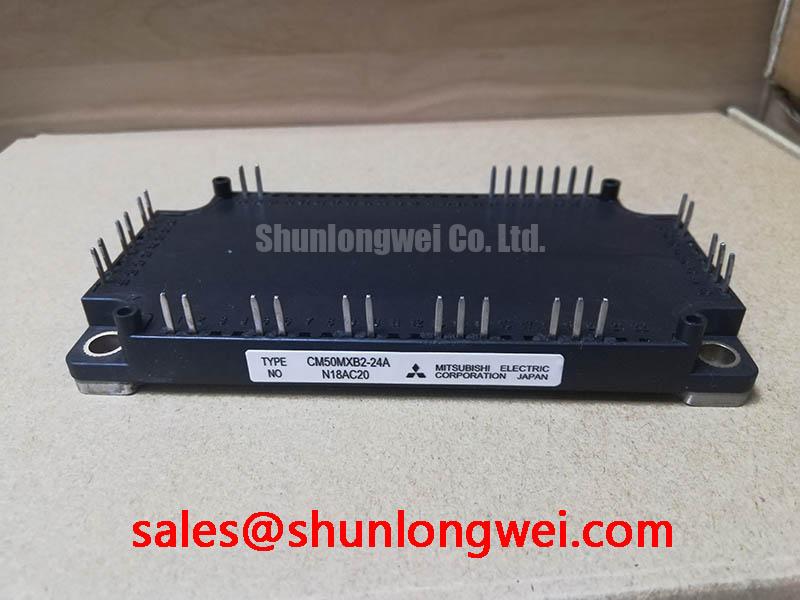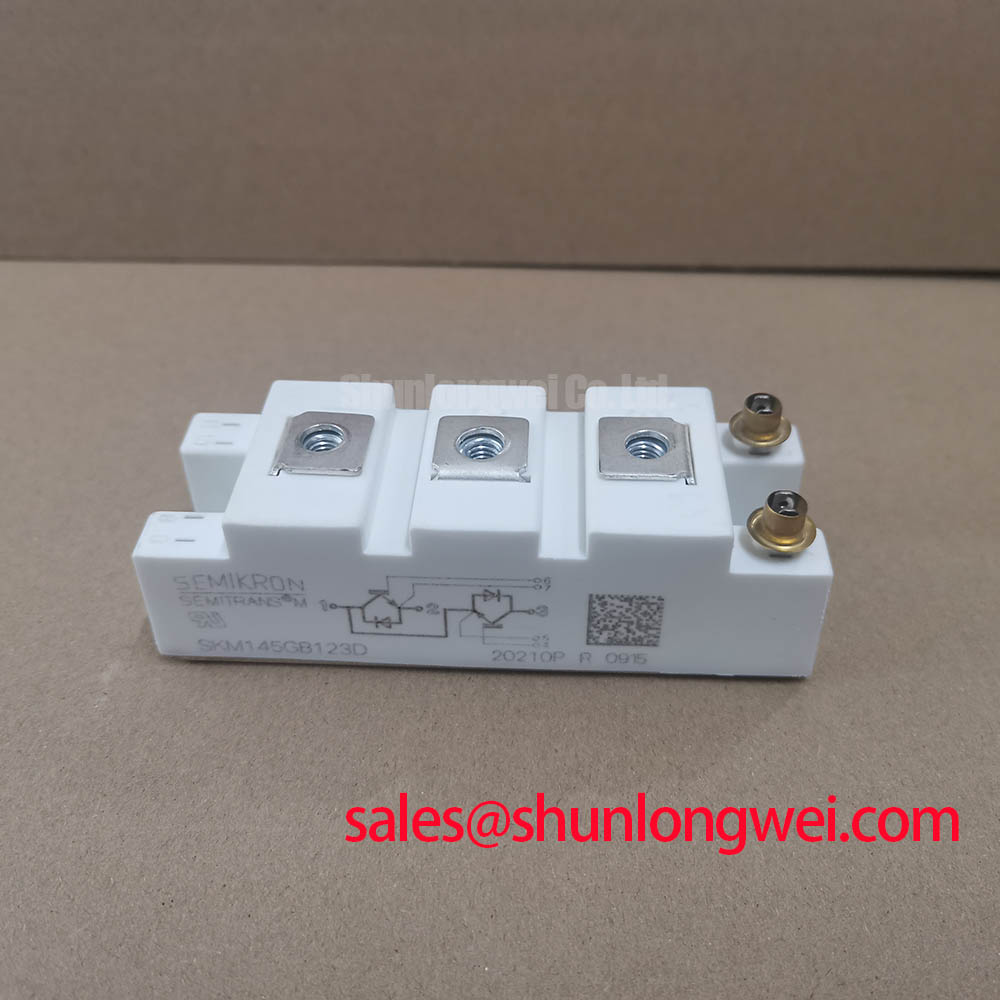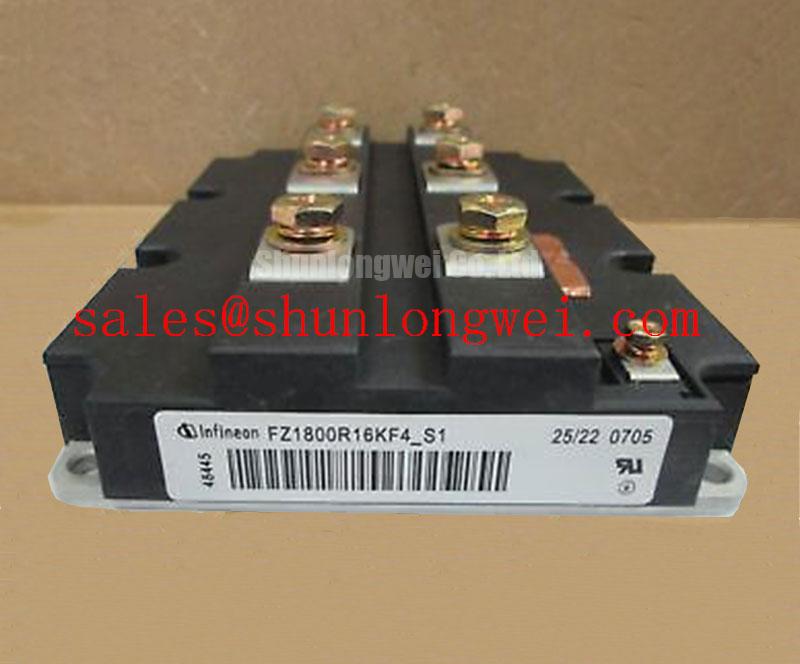Content last revised on October 24, 2025.
7MBP150RTB060 | 600V 150A 7-in-1 IGBT PIM Module
The Fuji Electric 7MBP150RTB060 is a highly integrated 7-in-1 Power Integrated Module (PIM) designed to streamline the development of compact and efficient low-to-mid power motor drives. This module features key specifications of 600V / 150A (Inverter) and includes an integrated NTC thermistor for precise thermal monitoring. Its primary benefits are a significant reduction in component count and simplified assembly processes, which accelerates design cycles. For engineers developing space-constrained AC drives, servo amplifiers, or other motor control systems, the 7MBP150RTB060 provides a robust, all-in-one power stage solution by integrating a three-phase converter, a dynamic brake chopper, and a full three-phase inverter into a single, compact package.
Application Scenarios & Value
System-Level Benefits in Compact Motor Control Systems
The primary value of the 7MBP150RTB060 lies in its ability to deliver a complete power stage for small to medium-sized motor control applications. In systems like compact Variable Frequency Drives (VFDs), servo drives, and uninterruptible power supplies (UPS), this module's high level of integration is a decisive advantage. Consider an engineer designing a VFD for a conveyor belt system where both precise speed control and rapid, controlled stopping are critical. The integrated brake chopper circuit within the 7MBP150RTB060 directly addresses this requirement without needing external components, saving valuable PCB space and reducing assembly complexity. Furthermore, the inclusion of an NTC thermistor allows for real-time junction temperature monitoring, enabling sophisticated thermal protection strategies that enhance long-term system reliability. This integration simplifies thermal management, reduces stray inductance, and ultimately allows for a more compact and cost-effective final product. For applications demanding different voltage or current ratings, the related 2MBI200VA-060 provides an alternative configuration for system evaluation.
Key Parameter Overview
Decoding Key Specifications for Inverter, Brake, and Converter Stages
The performance of the 7MBP150RTB060 is defined by its electrical characteristics, which are optimized for balanced efficiency and reliability in motor drive applications. The parameters are best understood when broken down by the module's functional blocks.
| Parameter | Symbol | Value | Conditions |
|---|---|---|---|
| Inverter Section | |||
| Collector-Emitter Voltage | Vces | 600V | |
| Continuous Collector Current | Ic | 150A | Tc = 25°C |
| Collector-Emitter Saturation Voltage | Vce(sat) | 2.1V (Typ.) / 2.7V (Max.) | Ic = 150A, Tj = 125°C |
| Thermal Resistance (Junction-to-Case) | Rth(j-c) | 0.29 °C/W | Per IGBT |
| Brake Section | |||
| Collector-Emitter Voltage | Vces | 600V | |
| Continuous Collector Current | Ic | 50A | Tc = 25°C |
| Thermal Resistance (Junction-to-Case) | Rth(j-c) | 0.63 °C/W | Per IGBT |
| Converter (Rectifier) Section | |||
| Repetitive Peak Reverse Voltage | VRRM | - | Not specified in primary datasheet excerpts, typically matches Vces. |
| Forward Current | IF | - | Not specified in primary datasheet excerpts. |
| General Module Characteristics | |||
| Isolation Voltage | Viso | 2500V | AC, 1 minute |
One of the most critical parameters for efficiency is the Collector-Emitter Saturation Voltage, Vce(sat). You can think of Vce(sat) as the electrical "friction" the device exhibits when it's fully turned on. The low Vce(sat) of 2.1V for the 7MBP150RTB060's inverter stage means that less power is wasted as heat during operation. This is similar to a well-lubricated bearing that allows a shaft to spin with minimal energy loss. Lower Vce(sat) directly contributes to higher overall inverter efficiency and reduces the burden on the cooling system.
Download the 7MBP150RTB060 datasheet for detailed specifications and performance curves.
Technical Deep Dive
Analyzing Thermal Performance and Overheat Protection
A standout feature of the 7MBP150RTB060 is its sophisticated approach to thermal management and protection. The module is engineered not just with low-loss IGBTs but also with an integrated protection scheme tied directly to the silicon's temperature. It provides an alarm signal for overheating conditions, a critical feature for preventing catastrophic failures in demanding industrial environments. This is enabled by the built-in NTC thermistor, which offers a direct and accurate measurement of the module's operating temperature.
The thermal resistance from junction to case, Rth(j-c), is a key metric that quantifies how effectively heat generated within the IGBT chip can be transferred to the module's baseplate and, subsequently, to the heatsink. The inverter IGBT's Rth(j-c) of 0.29°C/W is a testament to the package's thermal design. A lower Rth(j-c) value means the junction temperature will rise less for a given amount of power loss, allowing the module to operate at higher currents or within a higher ambient temperature while maintaining a safe margin. This characteristic is fundamental to achieving high power density and ensuring the long-term reliability of the entire power conversion system. For more information on power module technologies, see resources from leading manufacturers like Fuji Electric.
Frequently Asked Questions (FAQ)
Engineering Insights on the 7MBP150RTB060
What is the primary advantage of the 7-in-1 PIM topology in the 7MBP150RTB060 for a drive design?
The main advantage is system simplification. By integrating the input rectifier, brake chopper, and output inverter into a single component, it drastically reduces PCB complexity, lowers assembly costs, and minimizes stray inductance between power stages, which can improve electrical performance and EMI behavior.
How does the integrated NTC thermistor contribute to system reliability?
The integrated NTC thermistor provides a real-time temperature feedback loop for the control system. This allows for precise monitoring of the module's thermal state, enabling the implementation of protective functions such as power derating at high temperatures or controlled shutdown before a critical overheat event occurs, thereby significantly enhancing the operational lifespan and reliability of the motor drive.
















